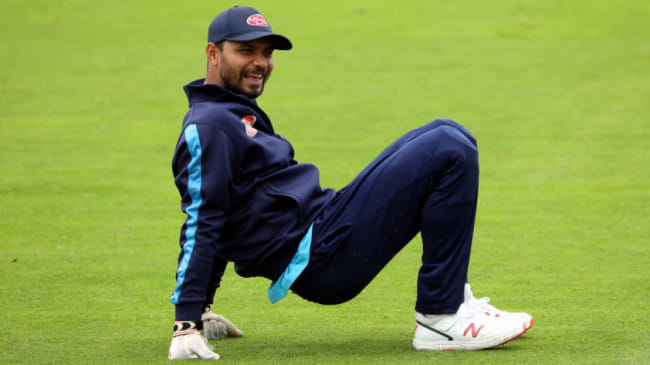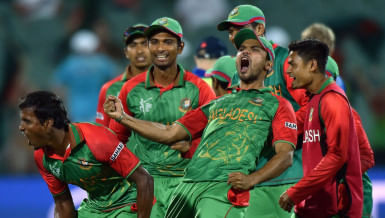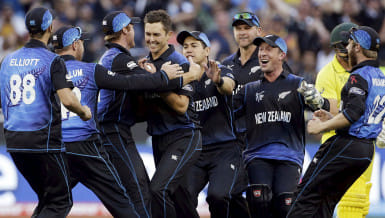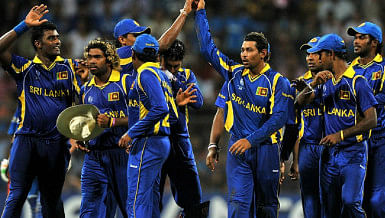Bangladesh started this World Cup campaign by looking within. Before the first match against South Africa, skipper Mashrafe Bin Mortaza talked about the team helping each other and shutting out the noise from outside. That approach, as well as sticking to their own brand of cricket, won them a memorable match against South Africa on June 2. Yesterday, some revealing words from Mashrafe indicated that not judging the situation and conditions themselves may have cost them the next match against New Zealand. That narrow two-wicket defeat at The Oval led to a confused bowling display against England in Cardiff and spirits were further dampened by a washout against Sri Lanka in Bristol, a match Bangladesh would have expected to win.
They have now arrived at a crucial juncture in their campaign, with much riding on today’s match against the West Indies on a small ground in Taunton and on a pitch which Mashrafe was unsure about as late as on the eve of the game. Misreading conditions had blighted them in the New Zealand match, and Mashrafe was eager not to repeat the same mistake today.
“Winning or losing depends a lot on how we assess the wicket. The team that correctly assesses the wicket faster, they will be ahead in the game. I think we misread the pitch in the New Zealand game,” Mashrafe said in the pre-match press conference yesterday. “If we had read the wicket right in that game, we would have targeted 260-270 batting first.”

Bangladesh were more or less on course for that kind of score, having reached 151 in the 31st over when Shakib Al Hasan got out. The following batsmen such as Mohammad Mithun seemed in a hurry to get a 300-plus score and lost their wickets, the result being Bangladesh all out for 244 when just 20 or 30 more runs could have made the difference.
The radio commentators during that game were insisting around the halfway stage of Bangladesh’s innings that the wicket looked good for a score above 300. Interestingly, Mashrafe mentioned commentators when speaking on the issue yesterday.
“I think it is the players’ call rather than someone from outside. It is hard to judge the wicket listening to commentary. They can only speculate, and only comment on things as it progresses in front of them. I think those in the middle should make decisions based on their judgment.”
He said this in response to a question about whether having Englishman Steve Rhodes as coach should have prevented such a misreading. Mashrafe, however, put the onus on players to decide as they were the ones playing on the surface.
“I think as much blame also goes to the players,” Mashrafe said. “It is normal to be criticised after losing a game. Wicket’s behaviour changes as the match progresses. You are likely to have in the back of your mind that the Oval wicket will produce 330-350 runs. I think our calculations were spot-on against South Africa.
“If Shakib hadn’t gotten out, we were going along the same path against New Zealand. When Mithun and Riyad were batting, we had the right thinking, towards a score around 270.”
The Taunton wicket, which produced a 300-plus total in the Australia-Pakistan game on June 12, will have similar ambiguity, according to Mashrafe.
“There’s confusion about this wicket as well. We heard it will be grassy but some are saying that it is usually a flat wicket. I think those who go out in the middle can assess it quicker.”
In a crunch game, it seems that Mashrafe is calling for a return to the ethos that won them the last game -- players thinking for themselves on the field and helping each other with their own judgement.
FACTS
- Bangladesh have never won a match against West Indies in the World Cup. Among the four matches played between the sides, West Indies have managed to win three while the 2003 World Cup encounter ended as a no result.
- Among the 37 ODIs played between the sides, Bangladesh have won 14 and lost 21 matches while two games ended as a no result. However, Bangladesh have won the last four of five meetings with West Indies.
- With 885 runs at an average of 40.22 from the 25 matches he played against West Indies, Bangladesh’s Tamim Iqbal is the leading run-getter between the sides. Mushfiqur Rahim is just behind with 879 runs while Shai Hope is in third position on the list.
- Bangladesh ODI skipper Mashrafe Bin Mortaza is the highest wicket taker between the two teams, leading the chart in ODIs with 30 wickets in 18 games. West Indies seamer Kemar Roach is on an equal 30 wickets but the right-arm pacer has played one match more than Mashrafe.
- Bangladesh were bundled out on just 58 by West Indies in the 2011 ICC World Cup in Dhaka. It was the lowest total ever from the Tigers in ODIs.


 For all latest news, follow The Daily Star's Google News channel.
For all latest news, follow The Daily Star's Google News channel. 









Leave your comments